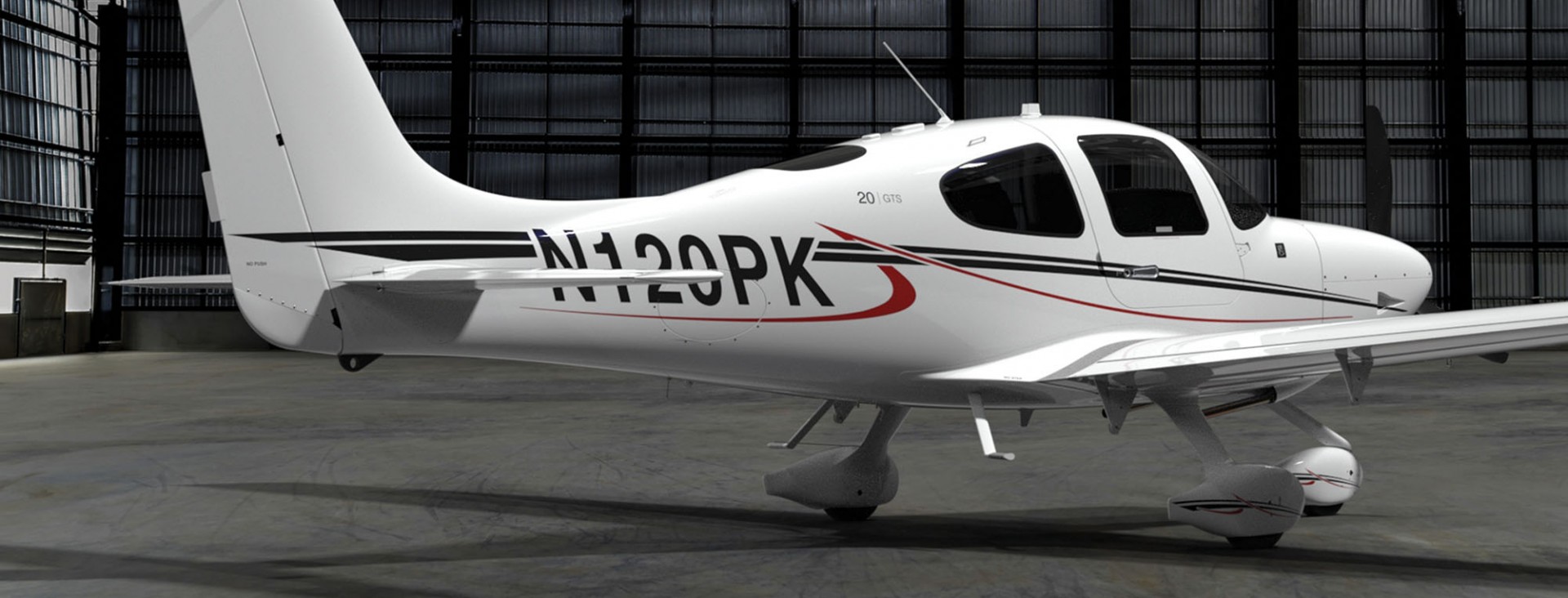

An Instrument Rating is meant for those pilots that are looking at advancing their flying skills with the use of advanced instrumentation and modern technology. An Instrument Rating allows for a pilot to safely and legally fly within clouds, restricted visibility, and advanced airspace.
The advantages of obtaining an Instrument Rating are plenty. With an Instrument Rating flights are no longer limited to clear weather days. One of the biggest reasons to add an Instrument Rating to your certificate is for enhanced safety not only within weather but during all types of flying. Instrument rated pilots are taught to a very high standard which shows truth in routine safety studies within the industry. The second common reason to add an Instrument Rating to your certificate is for expanded capability and reliability to your flight missions. More experience with instrument training results in far less cancellations due to weather. An Instrument Rating is also vital in making your flights easier through the difficult airspaces.
Call us at 307-472-4359 for any questions you may have on how to get started.
Just like Private Pilot flight training, Instrument flight training in comprised of two main areas:
Just like learning any new skill or new language, Instrument flying will take a steady commitment of time. Although this time does not have to be excessive and overwhelming we do recommend consistency which will prove to be beneficial in material retention and certification. Our recommendation is at least 2 lessons per week. We have many students that book upwards of 5 lessons per week which is very easy to accommodate with our staffing of Certified Flight Instructors. We are open year-round Monday through Saturday. We are closed Sundays and most major holidays. Sundays can be booked by appointment only with direct approval of your desired Certified Flight Instructor.
Rising Wings Aviation Inc. currently has a fleet (insert hyperlink to fleet) of Cessna 172s and a Cirrus SR20 Perspective Glass Panel Aircraft in which you can learn to fly.
Cirrus Aircraft is a state-of-the-art modern aircraft that comes standard with an airframe parachute (insert hyperlink to cirrusaircraft.com). The Cirrus Aircraft has been called by many “an IFR masterpiece” due to its advanced cockpit technology and ease of flight controls and systems. Many of our students have stated that it feels as simple as stepping into a modern vehicle.
The Cessna 172 has a long history as a smooth and effective flight training aircraft. Our fleet consists of aircraft equipped with everything from the basic analog gauges nicknamed the “six pack” (for its arrangement of the 6 standard flight gauges) as well as the most advanced Garmin G1000 glass panel cockpit.
This is very dependent upon how often you are able to fly as well as spend time studying outside of flight your scheduled lessons. Your overall training time can be significantly reduced by utilizing our Certified Flight Instructors for ground lessons as well as routinely spending time on your Sporty’s home study training material. Flying a minimum of 2 lesson blocks per week you can expect to have your certificate in approximately 8-12 months.
Flight training costs are dependent on the student. If you fly regularly, and are able to complete the course syllabus in the minimum times specified by the FAA, your total costs will be less. Below is a breakdown based on the FAA minimum requirements:
|
Cessna 172 |
Typical Average |
||
|
Hours |
Cost |
Hours |
Cost |
Cessna Aircraft Rental |
30 |
$6,600 |
55 |
$12,100 |
Cessna Aircraft Solo Rental |
10 |
$1,450 |
5 |
$725 |
Flight Training Materials |
|
$275 |
|
$275 |
Aircraft Rental Insurance/year |
|
$260 |
|
$260 |
Pilot Headset Rental |
|
$225 |
|
$225 |
Ground Instruction |
|
$1,500 |
|
$1,500 |
FAA Knowledge Exam |
|
$160 |
|
$160 |
FAA Medical Exam |
|
$125 |
|
$125 |
FAA Examiner Fee Practical Test |
|
$400 |
|
$400 |
Aircraft Rental Fee for Practical |
$230 |
$230 |
||
| Estimated State Sales Tax Non-Instruction Aircraft Rental |
$36.25 | $36.25 | ||
Total |
|
$10,911,25 |
|
$15,686.25 |
* These prices are an estimate. Actual costs vary per student depending on the proficiency and preparation of the student.
|
Cirrus SR20 |
Typical Average |
||
|
Hours |
Cost |
Hours |
Cost |
Cirrus Aircraft Rental |
30 |
$9,750 |
55 |
$17,875 |
Cirrus Aircraft Solo Rental |
10 |
$2,500 |
5 |
$1,250 |
Flight Training Materials |
|
$275 |
|
$275 |
Aircraft Rental Insurance/year |
|
$260 |
|
$260 |
Ground Instruction |
|
$1,500 |
|
$1,500 |
FAA Knowledge Exam |
|
$160 |
|
$160 |
FAA Examiner Fee Practical Test |
|
$400 |
|
$400 |
Aircraft Rental Fee for Practical |
|
$375 |
|
$375 |
Estimated State Sales Tax |
|
$62.50 |
|
$62.50 |
Total |
|
$15,282.50 |
|
$22,157.50 |
* These prices are an estimate. Actual costs vary per student depending on the proficiency and preparation of the student.